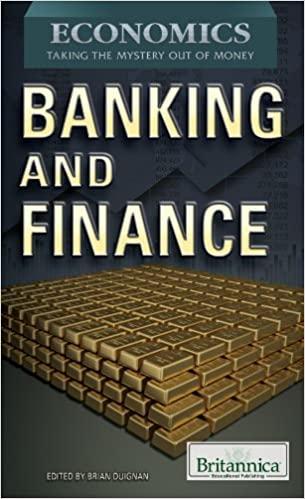the following question has multiple parts to it please answer all parts. thank you



P5-16 (similar to) Question Help Time value comparisons of single amounts Personal Finance Problem in exchange for a $23,000 payment today, a well-known company will allow you to choose one of the alternatives shown in the following table: Your opportunity cost is 9%. a. Find the value today of each alternative. b. Are all the alternatives acceptablethat is, worth at least $23,000 today? c. Which alternative, if any, will you take? a. The present value of Alternative A is $ (Round to the nearest cent.) Data Table (Click on the icon here in order to copy the contents of the data table below into a spreadsheet.) Alternative B Single amount $20,500 at the end of 3 years $60,500 at the end of 9 years $158,000 at the end of 20 years Print Done Homework: Chapter 5 Problems Save Score: 0 of 4 pts 5 of 6 (4 complete) HW Score: 42.86%, 9 of 21 pts P5-25 (similar to) Question Help Value of an annuity versus a single amount Personal Finance Problem Assume that you just won the state lottery. Your prize can be taken either in the form of $31,000 at the end of each of the next 25 years (that is, $775,000 over 25 years) or as a single amount of $373,000 paid immediately. a. If you expect to earn 4% annually on your investments over the next 25 years, ignoring taxes and other considerations, which alternative should you take? Why? b. Would your decision in part a change if you could earn 6% rather than 4% on your investments over the next 25 years? Why? c. At approximately what interest rate would you be indifferent between the two options? a. To decide which alternative to take, you need to compare the values of these alternatives. Although the total nominal dollar amount of the annuity is much larger than the single payment, the former is not necessarily a better choice due to the different timing of cash flows. A way to make a meaningful comparison of the two alternatives is to compare their present values. If you take the prize as an annuity, the present value of the 25-year ordinary annuity is $ (Round to the nearest cent.) Homework: Chapter 5 Problems Save Score: 0 of 5 pts 6 of 6 (4 complete) HW Score: 42.86%, 9 of 21 pts P5-39 (similar to) Question Help Compounding frequency, time value, and effective annual rates for each of the cases in the following table, B: a. Calculate the future value at the end of the specified deposit period. b. Determine the effective annual rate, EAR. c. Compare the nominal annual rate, r, to the effective annual rate, EAR. What relationship exists between compounding frequency and the nominal and effective annual rates? a. The future value of case A at the end of year 7 is $ (Round to the nearest cent.) Data Table (Click on the icon here in order to copy the contents of the data table below into a spreadsheet.) m Case Amount of initial deposit $2,700 $48,000 $900 $17,000 Compounding frequency, Deposit period (times/year) (years) 2 7 6 5 Nominal annual rate, r 8% 13% 6% 15% B 1 10 8 D 4 Print Done









